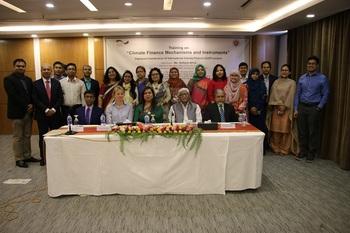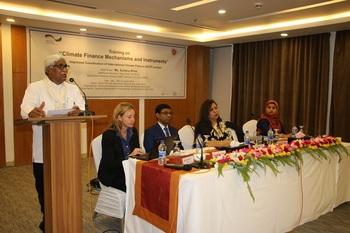Context
According to the Global Climate Risk Index (Germanwatch, 2017), Bangladesh is one of the ten countries that were most affected by climate change between 1996 and 2016. Climate change is intensifying the already high pressure on land and water resources in the densely populated country. The financial means that are currently available will not suffice to cover the costs that will be incurred through adaptation to climate change. It will be necessary to diversify climate finance, approach further bilateral and multilateral donors and consider commercial funding options where possible.
At present, there is a lack of coordination and strategic direction in accessing international climate finance to implement climate change mitigation and adaptation measures in Bangladesh. Climate projects and the involved institutions have limited skills to apply for financing. To date, the local level has been insufficiently involved in planning and decision-making processes of adaptation interventions. These factors can be changed within the scope of the Improved Coordination of International Climate Finance (ICICF) project.
Objective
The skills and capacities of national and local actors have improved in the field of climate finance in connection with the implementation of the 2030 Agenda.
Approach
The project has three areas of output: It supports the establishment of an International Climate Finance entity (ICFC) at the Economic Relations Division (ERD) of the Ministry of Finance. In cooperation with the private sector, it develops bankable climate projects that will achieve the Sustainable Development Goals (SDGs) of the Agenda 2030. It involves local level actors in achieving the SDGs within different adaptation projects.
The technical cooperation (TC) module adopts a multi-actor approach and addresses different levels of capacity development (CD).
At the national level, the project will provide support to the ERD of the Ministry of Finance, focusing on national and international options for climate financing; the strategic prioritisation and quality assurance of SDG-linked climate projects, and the steering of essential coordination processes between and within ministries.

